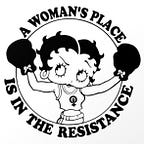Interview with Catalina Arroyave Restrepo, director of the film Days of the Whale
This is a guest post by critic Raquel Stecher, directly from the SXSW Film Festival.
Days of the Whale / Los días de la ballena was written, directed and produced by Colombian filmmaker Catalina Arroyave Restrepo. This is an auspicious start to what I hope is a long and fruitful career. Arroyave studied communication and film in Colombia, Argentina and Cuba and brings a new and fresh perspective to Latin American cinema.
I had the pleasure of interviewing Catalina Arroyave Restrepo at the world premiere of her film at SXSW:
Raquel Stecher: What is the inspiration behind Days of the Whale?
Catalina Arroyave Restrepo: Days of the Whale was my exploration of those pivotal moments that made up my youth. From those feelings of immortality and defiance, to falling in love with my best friends and growing up in the silent and implicit violence of Medellín, knowing that there are streets we can’t cross because they’re under someone else’s control and there are things that can’t be said because they might incite the anger of those with power. I needed to talk about those years to free myself from them, to mourn them and to recognize who I am now.
Raquel Stecher: Tell me about working with your two stars Laura Tobon and David Escallon.
Catalina Arroyave Restrepo: Working with them was the best part of making the movie, what I enjoyed the most and what taught me the most about myself. Laura and David are exceptional people, both with incredible talents as actors. It was their first time in front of the camera. They spent three months immersing themselves in the world of graffiti artists while becoming actors at the same time. They’re both sensitive, dynamic and genuine. Discovering them was a gift.
Raquel Stecher: How does your film reflect life in Medellin, Colombia?
Catalina Arroyave Restrepo: The film is my perspective on certain aspects of life in the city. I tried to be very honest. I think that the film reflects the most current course of life in Medellín in which many artists explore the ramifications of our violent history through urban art, music and cinema. It’s also a look at upper-and-lower-middle class families, who deal with different realities. It reflects a fragmented Medellín which sometimes manages to be whole.
Raquel Stecher: What does the whale symbolize in the story?
Catalina Arroyave Restrepo: The whale is a metaphor for lost innocence; that intensity we lose over time. Something within us dies when we face life’s harsh realities. In the film the whale dies but it’s reincarnated as the graffiti painting. It’s also a metaphor for what the people of my city decide not to see even though reality is facing them on every street corner. But I also want it to be a mystery, something that each viewer discovers for themselves.
Raquel Stecher: I loved the music in your movie. Tell me about how the different songs were chosen and how they reflect the themes of the story?
Catalina Arroyave Restrepo: I have a platonic love for music. I wanted the music to be an important part of the narrative because growing up without music is virtually impossible. I chose several musical genres to be part of the film: Rock (Los árboles, Hombre memoria), Hip Hop (Alcolyrikoz, Mañas, Rogue, Double portion), bands that were emblematic of Medellín and feature powerful lyrics. The Salsa (Siguarajazz) and Reggaeton (DJ Nelson and Alberto Style) reveal a more festive temperament, very characteristic of our universe. The Bolero (Convergencia de Miguelito Cuní) is one of my favorite genres.
Raquel Stecher: Why do you think it’s important for audiences to watch movies by female filmmakers?
Catalina Arroyave Restrepo: Nigerian author, Chimamanda Ngozi,
talks about the dangers of having only one perspective on any subject. The history of Western culture has not been narrated by female voices so having a version of the experience of being in the world, from a woman, can enrich our understanding of the human experience.
Raquel Stecher: What are you working on next?
Catalina Arroyave Restrepo: I’m working on a new script that continues to explore the female coming of age story, this time set in a Catholic school.
Be sure to visit Raquel’s site Quelle Movies and follow her on Medium and Twitter: Raquel Stecher and @QuelleLove
Do you want to write a guest post at Cine Suffragette? Get in touch with us: cinesuffragette@gmail.com
